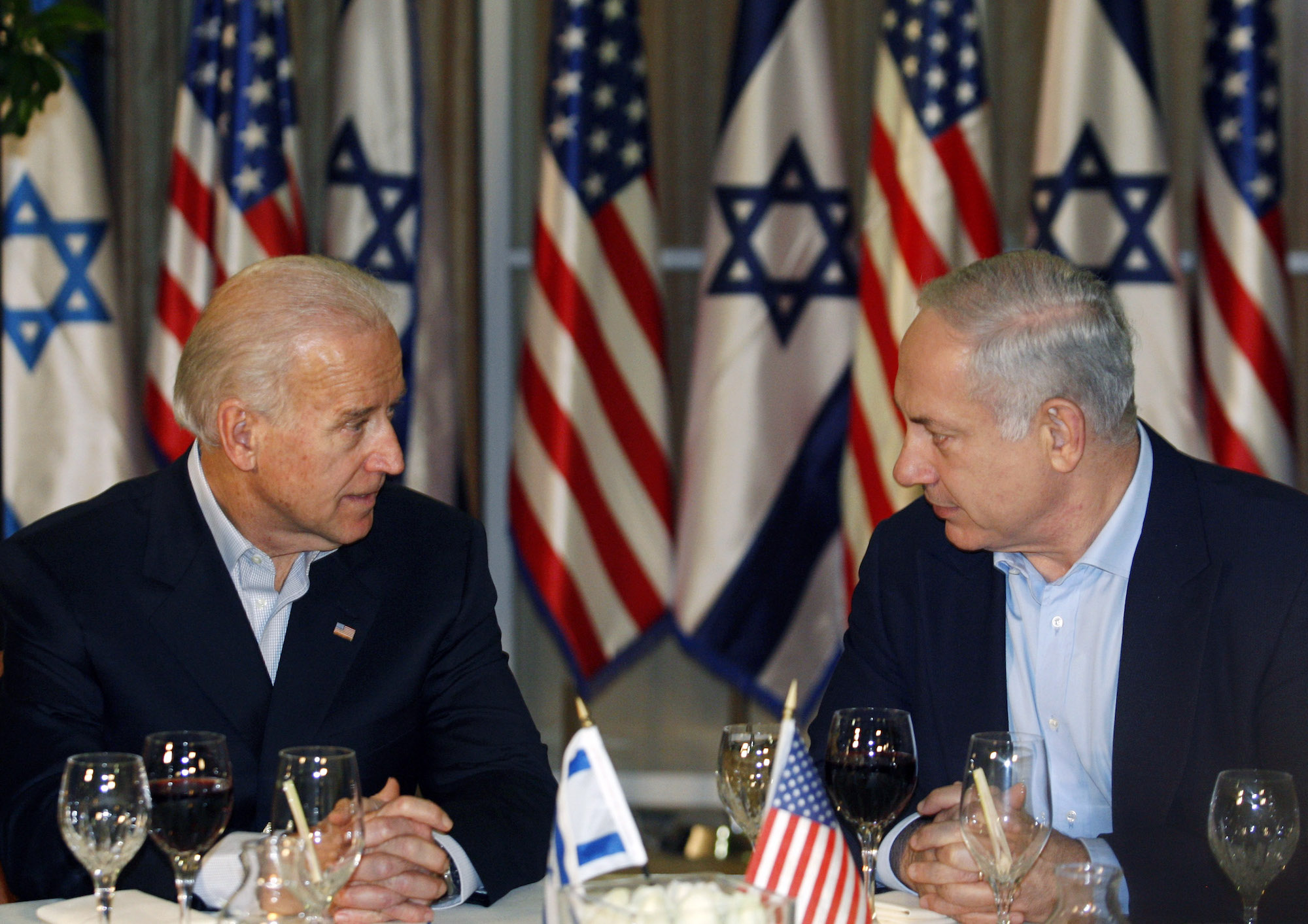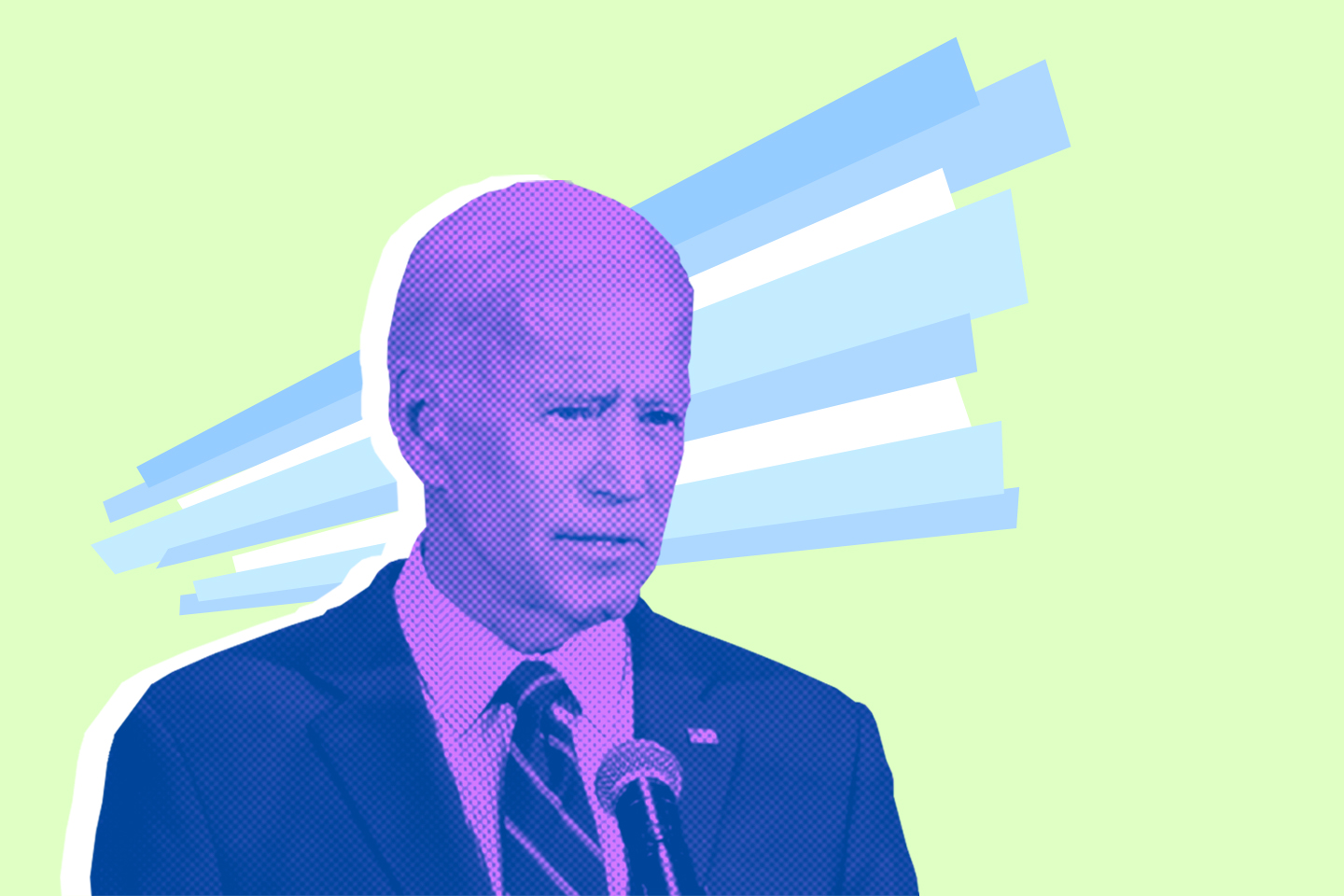The former vice president and former Senator Joe Biden (D-Del.) has had a long career in politics — 46 years and counting. Here, we’ll get into where he stands on Jewish issues.
What has Joe Biden said and done to address anti-Semitism?
In 2014, his Vice Presidential Twitter account shared a message from Biden: “There is no threat” that worries Biden more than anti-Semitism.
"There is no threat that worries me more than the rising tide of anti-Semitism. There can be no tolerance for anti-Semitism." -VP Biden
— VP Biden (Archived) (@VP44) December 6, 2014
In 2016, speaking at the American Israel Public Affairs Committee’s (AIPAC) annual policy conference, Biden said, “Israel will always exist strong and capable as the ultimate guarantor of security for Jewish people around the world. That is the abiding moral obligation we have. Never, never, never again and without Israel, there is no guarantee… the pernicious and persistent evil of anti-Semitism. It continues to rear its ugly head. It’s on the rise in too many parts of the world, particularly in Europe.”
What about domestic anti-Semitism?
Biden has shaped his presidential campaign as a battle for the “soul of the nation” and has made Trump’s reaction to the neo-Nazi march in Charlottesville a key part of his campaign. In the launch of his candidacy, Biden describes those who marched in Charlottesville in August 2017 as “baring the fangs of racism, chanting the same anti-Semitic bile heard across Europe in the 1930s.”
Biden later drew a direct connection between Trump’s reference to “very fine people” who took part in the neo-Nazi- and white supremacist-organized Charlottesville march and the Pittsburgh synagogue shooter.
How far is it from the white supremacists and Neo-Nazis in Charlottesville – Trump’s “very fine people” – chanting “You will not replace us” to the shooter at the Tree of Life synagogue in Pittsburgh saying Jews “were committing genocide to his people.”
Not far at all.
— Joe Biden (@JoeBiden) August 7, 2019
@JoeBiden, his official Twitter account, has tweeted about anti-Semitism — after the Christchurch mosque shooting in March 2019.
When Trump called American Jews who vote for democrats “disloyal,” Biden responded: “Mr. President, these comments are insulting and inexcusable — just like your previous dual loyalty insinuations. Stop dividing Americans and disparaging your fellow citizens. It may not be beneath you, but it is beneath the office you hold.”
When he released a statement about the Poway synagogue shooting, Biden said, “We must speak out against bigotry and gun violence,” and again emphasized, “We’re in the battle for the soul of this nation,” something he’s tweeted about upwards of 30 times.
Alright. So, Biden is very concerned about the soul of this nation.
Yes. Let’s move on.
What does Biden say about BDS, the movement to boycott, divest from, and sanction Israel?
Speaking about BDS at AIPAC in 2016, Biden said, “It’s wrong. It’s wrong. I know it’s not popular to say, but it’s wrong, because as the Jewish people know better than any other people, any action that marginalize one ethnic and religious group imperils us all.”
What is Biden’s relationship to Jewish groups?
Over his decades in politics, Biden has developed a strong relationship with AIPAC; in 2013, at AIPAC’s annual conference, Biden said, “I did more fundraisers for AIPAC in the ’70s and early ’80s than just about anybody.” Biden is a regular at the annual policy conference, and he’s spoken at J Street before.
One of his favorite stories to tell is a childhood memory of his father: It is 1948, he is 6 years old and sitting at the dinner table with his family, where his dad explains he cannot understand how there are people who didn’t want to recognize Israel. That’s where he first learned the phrase “Never Again,” he says (even though the phrase wasn’t popularized until years later). Biden goes back to this anecdote often to emphasize his life-long pro-Israel beliefs.
As the Jewish Telegraphic Agency’s Washington correspondent Ron Kampeas noted, “Many folks on the pro-Israel circuit have memorized Biden’s Jewish anecdotes, but that doesn’t diminish the applause.”
Okay, now let’s talk about Israel.
Way back in 1986, in a speech to the Senate, Biden said, “It’s about time we stop apologizing for our support for Israel, there’s no apology to be made. It is the best $3 billion investment we make. If there weren’t an Israel, the United States of America would have to invent an Israel to protect her interests in the region.”

Before that, in 1973, as a 30-year-old Senator from Delaware, Biden’s first overseas trip was to Israel. It was the eve of the Yom Kippur War; Biden met with Prime Minister Golda Meir. He has called it “one of the most consequential meetings I’ve ever had in my life.” The anecdote of Biden meeting Golda Meir, as Ron Kampeas notes at JTA, is a “staple of his Jewish speechmaking.”
What’s the speech?
“I remember meeting for close to an hour with her,” Biden recalled in a 2015 speech on Israeli Independence Day. “She went through what happened in the Six-Day War, and the price that was paid. And I just had come from Egypt … It turns out it was maneuvers taking place in the desert. And I was really worried. And we went through, and she painted a bleak, bleak picture — scared the hell out of me, quite frankly, about the odds.
“She said, Senator, you look so worried. I said, well, my God, Madam Prime Minister, and I turned to look at her. I said, the picture you paint. She said, oh, don’t worry…we have a secret weapon in our conflict with the Arabs. You see, we have no place else to go.”
So, Biden is a good friend to Israel.
Essentially, yep. Biden has since called himself a “stalwart supporter of Israel,” a country that “shares our democratic values.” He also told J Street in 2013, “There is no contradiction between being progressive and being a supporter of Israel.”
Biden tweeted in November 2019 in the wake of rocket attacks from Gaza that “Israel has a right to defend itself against terrorist threats. It is intolerable that Israeli civilians live their lives under the constant fear of rocket attacks. That’s why our administration was such a strong supporter of Israel’s life-saving Iron Dome.”
Where does he stand on solving the Israeli-Palestinian conflict?
In August, Biden told the Council on Foreign Relations, “I believe a two-state solution is the only path to long-term security for Israel, while sustaining its identity as a Jewish and democratic state. It is also the only way to ensure Palestinian dignity and their legitimate interest in national self-determination. And it is a necessary condition to take full advantage of the opening that exists for greater cooperation between Israel and its Arab neighbors.”
He continued, “At present, neither the Israeli nor Palestinian leadership seems willing to take the political risks necessary to make progress through direct negotiations,” explaining that as president, his goal would be to “urge both sides to take steps to keep the prospect of a two-state outcome alive.”
When asked about Jared Kushner’s prospects on making progress, Biden laughed and said, “What credentials does he bring to that?”
Biden has gone on the record that he would not move the U.S. embassy back to Tel Aviv (Trump moved it to Jerusalem), but he would re-open a consulate in East Jerusalem for Palestinians.
When asked by IfNotNow activists if he would “commit to meaningfully pressuring the Israeli government to end the occupation,” Biden replied, “Yes, but you also gotta pressure the Palestinians, to stop the hate, to stop calling for violence.”
Where does he stand on the settlements and aid to Israel?
Biden told PBS in November 2019, “I strongly oppose Israel’s settlement policy on the West Bank … But the idea that we would cut off military aid to an ally, our only true, true ally in the entire region, is absolutely preposterous. It’s just beyond my comprehension [that] anyone would do that.”
He echoed this in a statement to a Washington Post journalist, calling leveraging aid “absolutely outrageous.” (Other candidates have come on the record saying they would use aid to force Israeli policy changes, like Pete Buttigieg, Elizabeth Warren, and Bernie Sanders .)
Even though he is against conditional aid, Biden has repeatedly criticized Israeli settlement policy. In 2010, Reuters reported, “Vice President Joe Biden publicly scolded Israel on Wednesday over a Jewish settlement plan, saying it was undermining peace efforts.” In 2016, Biden said settlements erode “the prospect of a two-state solution.” Besides publicly criticizing it, however, he hasn’t outlined plans for ceasing settlement construction.
How does Biden feel about Netanyahu?
Speaking at J Street’s 2016 conference, Biden said the direction Israel was headed in was causing “overwhelming frustration with the Israeli government.” (Netanyahu was Prime Minister in 2016 — and for the entirety of Biden’s tenure as VP.)

However, in 2014, Biden said in a speech at the Brookings Institute, “Send a message to Bibi: I love him. I love him. I signed a picture years ago to him. I said, ‘Bibi, I don’t agree with a damn thing you had to say, but I love you.’ I agree with a lot he has to say, but if friends can’t acknowledge … the very things that are acknowledged in each of our countries, vis-à-vis one another, then it’s not much of a friendship.”
Tl;dr Biden on Israel
In love! We joke, but not really. Biden is anti-new-settlement-construction and anti-withholding aid, and believes the U.S. will play a key role in brokering peace.
Jewish fun fact
Biden has lots of Jews in his family: Two of Biden’s daughters-in-law are Jewish — his son Hunter’s wife is Melissa Cohen, from South Africa, and his late son, Beau, was married to another Jewish woman, Hallie Olivere. (After Beau passed, Hallie and Hunter dated. It’s messy.) His son-in-law, Howard Krein, is also Jewish.
Image of Joe Biden by Preston Ehrler/SOPA Images/LightRocket via Getty Images; design by Grace Yagel





